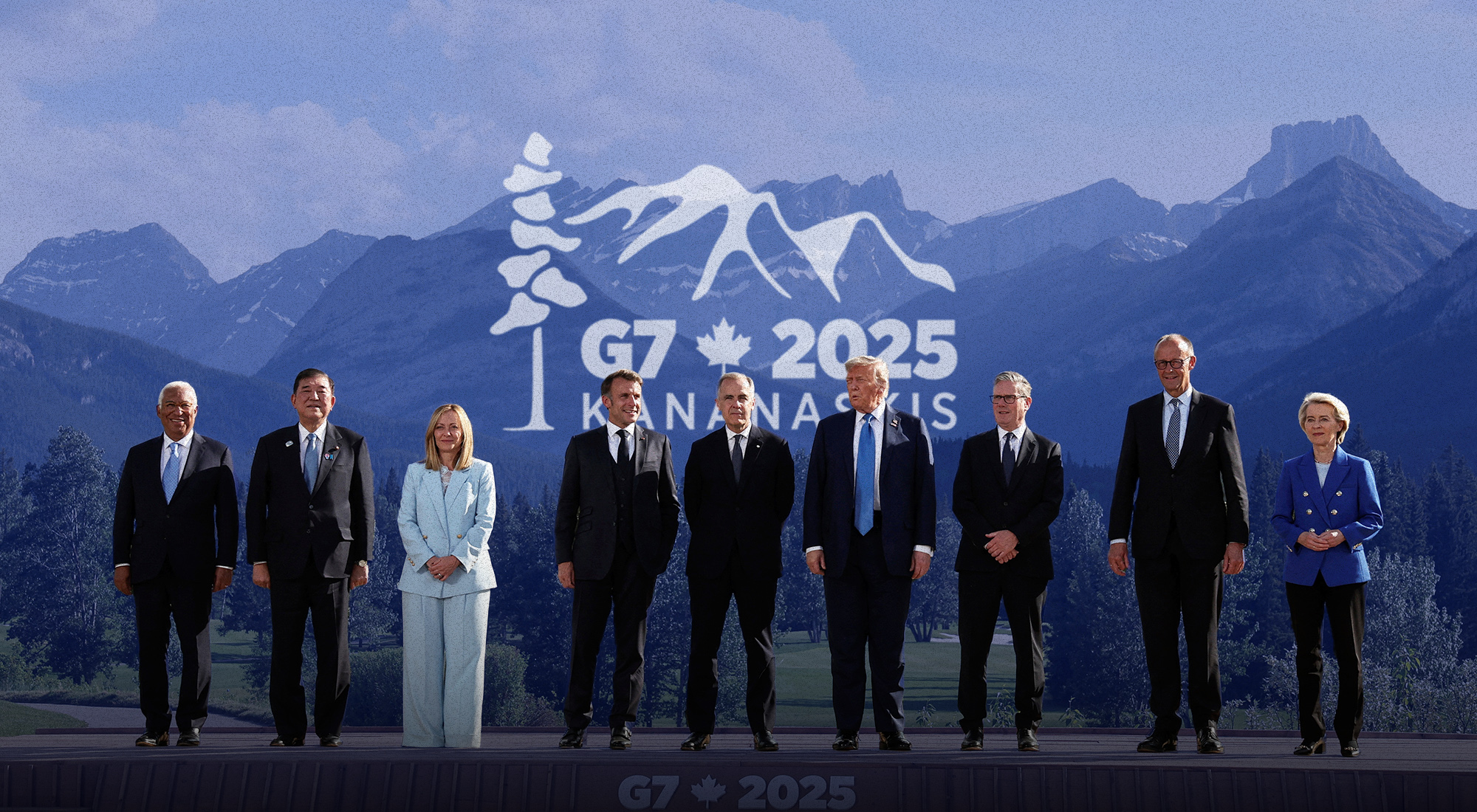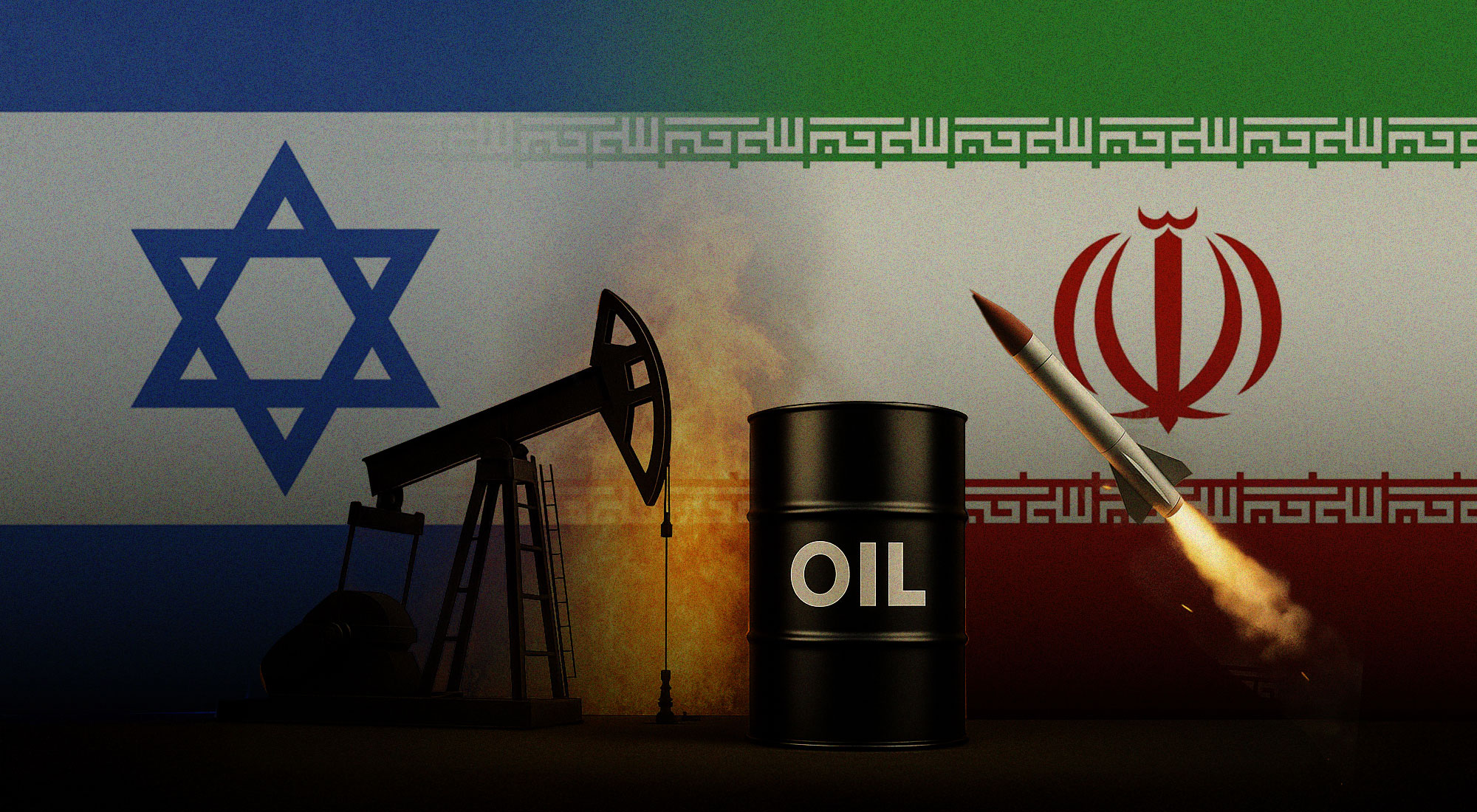<p style=”text-align: justify;”>Even as the world held its breath after the American strike that eliminated Qassem Soleimani, a great deal of tension already surrounded relations between the United States, and its allies, and Iran. The unilateral action against Soleimani – the Major General of Iran’s Islamic Revolutionary Guard Corps and Commander of the Quds Force – disrupted an already delicate status-quo across the MENA region. The US called the <a href=”https://www.whitehouse.gov/briefings-statements/remarks-president-trump-iran/”>action preventative</a> and intended to send a message to Iran. However, this was not the first US action in recent months that was viewed as disruptive to US relations in the Middle East.</p><p style=”text-align: justify;”>Not long ago, the Trump administration’s decision to withdraw US forces in northeast Syria had invited anger and effectively left its Kurdish allies to their destiny. The move was almost immediately viewed as a great <a href=”https://www.theguardian.com/world/commentisfree/2019/oct/12/turkey-invasion-syria-trump-withdrawal-gulf-rivals-unite”>victory for Turkey</a> and its endeavor to rid its southern border of Kurdish influence. Regardless of its immediate impact on Turkey and its interests, this American action may very well be an indication of an evolved American foreign policy in the region – one that transparently puts <a href=”https://thehill.com/opinion/international/466098-dont-let-america-first-become-america-last”>American interests before the preservation of relations</a> with its allies. At the time of the announcement of the pullout, President Trump was also dealing with the prospects of impeachment – a threat that has since been <a href=”https://www.washingtonpost.com/politics/trump-impeachment-live-updates/2019/12/18/237147e8-2110-11ea-bed5-880264cc91a9_story.html”>proven legitimate</a>, despite the acquittal by the US Senate that followed.</p><p style=”text-align: justify;”>Few issues in recent American memory have gathered more <a href=”https://www.nytimes.com/2019/10/16/us/politics/house-vote-trump-syria.html”>bipartisan support</a> than the decision to <a href=”https://www.nytimes.com/2019/10/13/us/politics/mark-esper-syria-kurds-turkey.html?auth=login-facebook&login=facebook”>withdraw from Syria</a>, particularly given the socially divisive policies of the Trump administration. It effectively abandoned Kurdish allies in the Syrian Democratic Forces (SDF) to the will of Turkey. This was viewed as a significant shift in the US approach toward Syria, and the Middle East at large. Though the decision was unexpected and certainly controversial, such a move does not run contrary to Trump’s long-standing rhetoric on Syria and the relationship with the SDF, which Ambassador James Jeffrey once described as “<a href=”https://www.state.gov/briefings/department-press-briefing-december-18-2018/”>tactical and transactional</a>”.</p><p style=”text-align: justify;”>Though the decision was unpopular on both sides of the aisle, Americans do favor an end to “forever wars” and what seems to be a never-ending military entanglement in the Middle East – a sentiment that may have <a href=”https://papers.ssrn.com/sol3/papers.cfm?abstract_id=2989040″>contributed to Hilary Clinton’s loss in 2016</a>. Working closely with Turkish President Recep Tayyip Erdoğan and seemingly ceding to Ankara’s demands gives the US the opportunity to end an extended conflict in Syria, while also – in the short-term – reinforcing strained ties with Turkey.</p><p style=”text-align: justify;”>In withdrawing troops from northeast Syria, the US made it clear that accomplishing a set of goals in the region takes precedence over a blanket policy of protecting American allies. Left to their fate, the Kurds had little choice but to <a href=”https://www.washingtonpost.com/world/us-troops-withdraw-from-another-syrian-town-as-turkish-forces-block-supply-lines/2019/10/13/aab5fab8-ec5a-11e9-a329-7378fbfa1b63_story.html”>ally themselves with Bashar al-Assad</a>. Though the US has been vocal about <a href=”https://2009-2017.state.gov/secretary/20092013clinton/rm/2011/11/177044.htm”>desiring regime change in Syria,</a> this rhetoric has largely died down. By putting the Kurds in a position where an alliance with Assad becomes the most appealing and likely the only option available, the US sent a message that it has no desire to continue to push for regime change. More importantly, it sent the message that it has no desire to play a leading role in the future of Syria.</p><p style=”text-align: justify;”>Aside from counterterrorism and the struggle against ISIS, a battle which, <a href=”https://www.washingtonpost.com/politics/mcconnell-joins-other-republicans-in-rebuking-trumps-syria-withdrawal/2019/10/07/aef0d11e-e914-11e9-9306-47cb0324fd44_story.html”>contrary to his aides and many in his party</a>, Trump believes is largely won; the US is therefore content with stepping back in favor of active players like Russia and Turkey. Though this decision has proven unpopular within the United States, it sets the stage for a hands-off strategy in Syria. Despite the initial media frenzy, the conversation has largely faded away as tension with Iran increased and media focus was redirected elsewhere.</p><p style=”text-align: justify;”>Though Turkey has been an American ally since World War II, US-Turkish relations have been far from stable. They have gradually <a href=”https://www.latimes.com/archives/la-xpm-2003-mar-02-fg-iraq2-story.html”>declined since 2003</a> when Turkey took a firm position against supporting the US intervention in Iraq. Relations remained strained under the Obama administration – owing greatly to foreign policy disagreements involving Syria and frustrations around American involvement with Kurdish forces along the Syria-Turkish border.</p><p style=”text-align: justify;”>The failed coup d’état against Erdogan in July 2016 can be seen as a<a href=”https://www.militarytimes.com/news/your-military/2016/07/17/u-s-turkish-tensions-rise-after-failed-coup-attempt/”> transformative focal point in Turkish foreign policy</a>, particularly concerning the US. The Turkish government placed the blame on <a href=”https://www.npr.org/sections/parallels/2017/07/11/536011222/cleric-accused-of-plotting-turkish-coup-attempt-i-have-stood-against-all-coups”>Fethullah </a><a href=”https://www.npr.org/sections/parallels/2017/07/11/536011222/cleric-accused-of-plotting-turkish-coup-attempt-i-have-stood-against-all-coups”>Gülen</a>, a noted dissident wanted by the Turkish government, and his sympathizers. The United States rejected Turkey’s multiple demands that<a href=”http://jtl.columbia.edu/gulen-extradition/”> Gülen, currently living in the state of Pennsylvania</a>, be extradited.</p><p><img src=”https://trendsresearch.org/wp-content/uploads/2020/02/shutterstock_1531599365.jpg” alt=”InsightImage” width=”100%”></p><p style=”text-align: justify;”>Meanwhile, the Turkish rhetoric around alliance-building strayed further from the West and has been oriented in a <a href=”https://www.theguardian.com/world/2018/apr/11/turkey-ever-closer-ties-with-russia-leave-us-lacking-key-ally-on-syria”>manner more sympathetic toward Russia</a>. The two countries have had dramatically different perspectives on the future of the Middle East – particularly regarding Syria and President Bashar al-Assad’s regime. While Russia has been one of Assad’s most firm state supporters, Turkey has been vocal about their <a href=”http://www.jpost.com/Breaking-News/Turkey-to-fight-Islamic-State-Erdogan-says-377766″>desire for regime change</a>, placing the blame for the refugee crisis and the ongoing conflict squarely in the hands of Bashar Al-Assad. Despite this contrasting foreign policy, Russia and Turkey have expressed a genuine ability to cooperate on the matter.</p><p style=”text-align: justify;”>The Kurdish presence along the southern border continues to be Turkey’s priority. This is still viewed as a threat – one that Turkey believes can potentially mobilize a frustrated Kurdish population within Turkey and energize the Kurdistan Workers Party (PKK). <a href=”https://foreignpolicy.com/2019/10/17/turkey-claim-syrian-kurds-terrorists-not-isis-ypg-pkk-sdf/”>Turkey has long considered the Syrian Kurds to be an offshoot of the PKK</a>, a designated terrorist group within Turkey. Their funding by the US, a NATO ally, has been used as justification to <a href=”https://www.independent.co.uk/news/world/middle-east/recep-tayyip-erdogan-syria-kurdish-force-drown-turkey-us-sdp-ypg-pkk-a8160111.html”>further criticize the United States </a>and point to its lack of credibility.</p><p style=”text-align: justify;”>Trump’s phone call with Turkish President Recep Tayyip Erdoğan shortly before the announcement to withdraw American troops pointed to the possibility that this decision was made in coordination or at least in consideration of Turkish interests. President Erdoğan has been transparent in his views related to a Kurdish presence along the Turkish border. With the withdrawal of American troops, Turkey was suddenly free to enter the contested space, driving back the SDF significantly. President Trump’s response to this, a warning note to President Erdoğan on October 9, 2019, had minimal impact. Operation Peace Spring was launched that very day, resulting in the alleged displacement of<a href=”http://www.syriahr.com/en/?p=144627″> 300,000 people and the death of 120 civilians</a>. In its aftermath, Vice-President Mike Pence negotiated a five-day ceasefire along the Turkish border. <a href=”https://thedefensepost.com/2019/10/22/russia-turkey-syria-mou/”>These were accompanied by the demand for a 20 mile “safe zone” along 300 miles of the Syrian/Turkish border</a>.</p><p style=”text-align: justify;”>The creation of this safe zone effectively fulfilled the Turkish government’s desire to eliminate the Kurdish threat along its border. It also provided Ankara with the buffer zone in Syria where it plans to relocate Syrian refugees within its borders. The perks for Turkey, should such an ambitious goal be realized, are threefold. Turkey’s economic strain providing for these refugees is lessened. Turkey eliminates the Kurdish presence along its border, making the Kurds a minority among returning Syrians from other areas. It also establishes a strong region of influence, maintaining a foothold, and to some degree, loyalty, from the Syrians it has resettled. This would be extremely ambitious. Without external support, resettling Syrians in this area while also fighting off the Kurds will make it necessary to occupy Syrian territories for extended periods. Syrian President Bashar Al-Assad has already expressed his frustration over Erdoğan’s actions in northern Syria and vowed to retake all of Syria, claiming, <a href=”https://www.aljazeera.com/news/2019/10/assad-calls-erdogan-thief-rare-visit-idlib-frontline-191022163333341.html”>“Erdoğan is a thief who </a><a href=”https://www.aljazeera.com/news/2019/10/assad-calls-erdogan-thief-rare-visit-idlib-frontline-191022163333341.html”>is now stealing</a><a href=”https://www.aljazeera.com/news/2019/10/assad-calls-erdogan-thief-rare-visit-idlib-frontline-191022163333341.html”> our lands.”</a></p><p style=”text-align: justify;”>Despite the skewed nature of this compromise, President Trump touted it as a great success, <a href=”https://thehill.com/homenews/administration/466334-trump-praises-turkeys-erdogan-after-us-announces-ceasefire-deal”>praising the Turkish president for his leadership</a> and doubling down on the importance of Turkey as an American ally. This did not quell the overwhelming bipartisan frustration toward Turkey – evident in the US Senate’s <a href=”https://www.nytimes.com/2019/12/12/us/politics/senate-armenian-genocide.html”>acknowledgment of the Armenian genocide</a> not long after. On November 13, 2019, <a href=”https://www.npr.org/2019/11/13/778602142/president-trump-hosts-turkeys-erdogan-despite-concerns-in-congress”>Trump hosted Erdoğan</a>, where he endorsed Turkey’s policy on Syria and applauded the Turkish government’s commitment to tackle extremism in the region and collaboration with the US in the battle against ISIS.</p><p style=”text-align: justify;”>An integral part of President Trump’s campaign in 2016 was the promise to remove the US military from the Middle East, after taking down ISIS. By giving his seal of approval to Turkey in Syria and acknowledging them as peers in the battle against American enemies, Trump may well have given the US the ability to shed the burden of responsibility in northeastern Syria – though at the expense of its perceived trustworthiness among its allies. This is especially relevant as the international community continues to speculate over the immense task of rebuilding of Syria – a project that is estimated to cost over <a href=”https://www.theatlantic.com/international/archive/2019/03/where-will-money-rebuild-syria-come/584935/”>$250 billion</a>.</p><p style=”text-align: justify;”>It seems that the United States is not keen to play a major part in the region. Except for Syrian oil fields – which are still guarded by American soldiers to ensure they are not seized by radical militants and monetized – the US does not seem to desire a foothold in Syria. Instead, it is attempting to build closer relations with allies willing to do so. Though it is crucial not to generalize this approach across the region, it does appear that American actions in Syria, including prioritizing immediate goals over the protection of allies, paints an image of the future of American policy within the Middle East and North Africa.</p><p style=”text-align: justify;”>Put simply, unless there is an immediate threat that endangers the US, or a deep relationship focused around trade and mutual economic gains, the country will avoid indefinite entanglement in the Middle East. Whether this is a result of populist sentiments in American politics or a lesson learned in Iraq and Afghanistan, it may define the future of American engagement in the region; at least under the Trump administration. This is particularly relevant in the case of Turkey, a country that the US does not depend on economically, nor politically.</p><p style=”text-align: justify;”>From an economic perspective, the US holding strong on Turkey not being readmitted to the F-35 Joint Strike Fighter Program. Ankara maintains that its purchase of the<a href=”https://foreignpolicy.com/2019/12/10/us-lawmakers-move-punish-turkey-buying-russian-missile-system-s400/”> Russian S-400 missile defense system</a>, the action that led to Turkey’s ejection from the F-35 program, was a reaction to the <a href=”https://ahvalnews.com/us-turkey/turkeys-erdogan-blames-obama-administration-s-400-crisis”>Obama administration’s refusal to sell the US Patriot missiles to Turkey</a>. Before Turkey was eased out of the F-35 program, Turkish manufacturers had been slated to produce a variety of components for the planes. This would have been a welcome boost for a <a href=”https://www.nytimes.com/2019/07/08/business/turkey-economy-crisis.html”>struggling Turkish economy</a>. In his meeting with President Trump, President Erdoğan again stressed that Turkey would be willing to purchase Patriot missiles if the Russian S-400 missile system continues to act as a barrier to its admission to the F-35 Program. Trump was hesitant to speak on the matter.</p><p style=”text-align: justify;”>Though President Erdoğan had publicly <a href=”https://www.npr.org/2019/11/13/778602142/president-trump-hosts-turkeys-erdogan-despite-concerns-in-congress”>attributed this stance to Trump’s impeachment woes</a>, it does not seem as if the United States <a href=”https://docs.house.gov/billsthisweek/20191209/CRPT-116hrpt333.pdf”>government has an immediate plan to change its strategy regarding Turkey </a>and the F-35 Joint Strike Fighter Program. As far as Turkey’s economic growth goes, it needed to win this battle as a more important objective than its victory over influence in northeast Syria. The unwillingness to waver over this suggests that relations between Turkey and the US are not going to change drastically anytime soon. When coupled with internal economic strain and Turkey’s ongoing issues<a href=”https://www.americanprogress.org/issues/security/reports/2019/03/13/467183/turkeys-refugee-dilemma/”> integrating Syrian refugees</a>, many of whom are likely never to leave Turkey, this does not bode well for Turkey.</p><p style=”text-align: justify;”>Turkey is not unwarranted in expressing doubt over the strength of their alliance with the United States. Even the closest US allies in the region, such as Israel, has felt <a href=”https://www.washingtonpost.com/”>frustration over the recent impulsive American decisions</a> in the region. Despite, for instance, a historically tight-knit relationship with Israeli Prime Minister Benjamin Netanyahu, President Trump has clarified that ultimately, the US’ relationship <a href=”https://www.washingtonpost.com/politics/our-relations-are-with-israel-trump-appears-to-give-embattled-netanyahu-the-cold-shoulder/2019/09/18/9950eb24-da45-11e9-bfb1-849887369476_story.html”>lies with the state, not the man</a>. This occurred after Netanyahu’s second election failure – furthering the populist narrative surrounding the Trump administration and its approach to decision making in the region. Though some of these doubts were eased after the Trump administration’s strike against Qassem Soleimani, Netanyahu has made explicit efforts to distance Israel from it, calling it “an American event.”</p><p style=”text-align: justify;”>This lack of predictability has frustrated American allies in the region – and may have furthered the Russian agenda in Syria and beyond. A unique caveat of the Trump administration, however, is that this is not regarded as a threat to American interests. American interests in the region, particularly in Syria, remain clear: eliminating the presence of ISIS, the protection of Israel, and until of late, halting the <a href=”https://www.washingtonpost.com/”>spread of Iranian influence</a> that could threaten Israel or the tight-knit relationship the US enjoys with Saudi Arabia. These interests remain the same.</p><p style=”text-align: justify;”>All other facets of American engagement of the region, it is now clear, can change seemingly in an instant. This has pushed <a href=”https://tnsr.org/roundtable/policy-roundtable-the-future-of-turkeys-foreign-policy/”>Turkey and Russia closer together,</a> likely resulting in a Syria that will be defined by Turkey and Russia, with the Assad regime remaining in power subject to meeting certain conditions. The alliance of the Kurds with the Assad regime, while necessary, halts immediate conversation about an autonomous Kurdish state in Northern Syria; a possibility that <a href=”https://web.archive.org/web/20150705014343/http:/www.economist.com/news/middle-east-and-africa/21656692-turkey-and-jordan-are-considering-setting-up-buffer-zones-war-scorched”>Turkey has historically stood against</a> and has effectively eliminated.</p><p style=”text-align: justify;”>The future of American engagement with Turkey vis-à-vis Syria will continue as it currently stands – where Turkey is neither an ally nor antagonist.</p>








